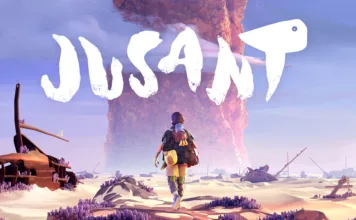By: Lynda McDonald
In a world where gaming is no longer just for “nerds” or kids, we are seeing a rise in people of all ages and backgrounds becoming addicted to gaming. In particular, MMOs seem to be the main offender. When I was much younger, and could not afford a monthly World of Warcraft subscription, my brother and I quickly became addicted to a free MMORPG called Last Chaos. For years I dipped in and out of the game, and during the times when I played it, that was literally all I did with my time. Back then I never gave my gaming habits much thought, but this year when I saw myself replicating the same behaviour with Destiny, I started to wonder: why?
I had just graduated from college yet I was dodging plans with my friends as if I was allergic. I tried to start tricking myself into thinking that I wasn’t spending all my time playing Destiny by consuming myself with other people’s playthroughs, twitch live streams and reading articles about Destiny. By the time I went to actually do something in the game I knew everything there was to know about it. It was an obsession. Eventually, a day came when I realised that all I could converse about was Destiny because that was all I did anymore, and that was the day I decided that I wanted to stop. I mean, what did I get out of it anyway?
Achievement/Reward
When we play video games we normally are striving to create a sense of achievement within ourselves. This can be as small as just passing a single level in a game or as big as completely maxing out a character in an MMO. I think that the reason we are seeing so many people play so much Destiny is because they really have the reward system balanced just right. Each week all the raids and Prison of Elders reset, which means from Tuesday onwards you could start your checklist for them before the weekend began. On top of that, the bounties change on a daily basis, so even when I was bored I found myself just logging in to do those.
Nick Yee’s article The Virtual Skinner Box likens EverQuest to behavioural experiments carried out on rats. Rats are trained to press a lever that releases a food pellet. The experiment found that the most successful way to have the rat continuously press the lever was to have the pellet drop after a random amount of pushes, rather than after a set number of pushes or a set amount of time. This same logic can be applied to Destiny in terms of loot drops. Just like at the beginning of the skinner box when every time the rat pushes the lever it gets a pellet, when you start a new character in Destiny receiving the first good loot drop is relatively instantaneous and as time goes on it takes longer and longer to get better gear. The levelling system in the game ensures that players focus on loot drops above all else, as it is the only way they can further their level. But loot drops are random, and really good ones are rare. In fact in order to be even able to attempt to get the “best” gear possible from the hard raid you have to already equip the best loadout you can. This gear is usually raid gear, which leads me to my next point.
Social Obligation
In most MMOs there is some element of team-play or raiding. Destiny doesn’t have matchmaking for raids so I had the added challenge of going online to find people myself. It felt like selling yourself at a market (“Lvl 40 Hunter 300”) hoping someone would pick you up for a raid. The only way you can get the best gear is to complete the raid every week, praying that it drops something you need. Eventually, you start to raid with the same people because you guys all get along and none of you are really terrible. This leads to actually making plans to raid on a weekly basis, maybe even more than once because you all have multiple characters and want to use them all for the raid to max out your chances of getting the best gear. The game is designed so that players have to raid together to get the best gear. Yet raids can only be completed when done a certain way and everyone knows what to do. As Yee said in his article Attraction Factors “The high-stress situations inherent in the game also help build trust and bonds between players very rapidly.” So now we all feel bonded cause we’ve been through a stressful event together. This is all creating a sense of social obligation. People who feel this might be missing in their actual life can easily become sucked in by this sense of belonging. Mike Fahey’s article describing his EverQuest addiction showed how much of an impact social obligation can have as it ultimately led to his relapse.
In the previous article, I discussed the use of achievement/reward and social obligation as a means to make video games, (in particular Destiny), addictive (or maybe it’s merely a symptom of good design).
Identity – Old or New
Destiny offers you the chance to create a character and use it as your avatar in the game. Some people may chose to make one that similar in appearance to them and may even chose to use this character as a way to project themselves as they are into the virtual world of destiny. Then there are players who chose to create a character with an identity that is completely separate to their own. This offers them the chance to role play and leads some down the path of escapism. Both of these styles of playing can be addictive in their own right. Playing as yourself can allow you to create real friendships and build a stronger sense of social obligation. Role playing a character can be especially addictive for players with low self esteem or are unhappy with their own life in some way. In both cases it is likely that the player will develop an attachment to their avatar.
Comparison (Keeping Up with the Joneses)
In a virtual setting like Destiny it is even easier to compare yourself to other people than it is in real life. You can literally walk up to a player and look through their inventory and directly compare their armour and equipment to yours. In the real world people get into debt and make other life-changing decisions all in the name of keeping up with the Joneses. Transfer this same concept into a virtual world where all you need to do is spend more time in order to acquire the very best gear and you have a recipe for compulsive playing. Young people have accepted comparing themselves to other through the use of social media as the norm. This leaks into other areas of our lives and makes it the norm there too. When the Taken King came out first I often saw other players rush over to investigate the inventory of players wearing the new raid armour. In an age when we are taught to envy others through social media is it any surprise we envy them in-game?
All of these factors on their own can be addictive enough to cause some players to become hooked. But Destiny caters to multiple factors at the same time. This is likely why are seeing so many players logging on so regularly. Add in the fact that Destiny incorporates a multiplayer similar to Halo’s, a raid system, Prison of Elders and the option to just roam around the map if you want. Suddenly it is obvious why it appeals to such a broad audience. If you get bored of one particular aspect of the game you can switch to doing something with a completely different mechanic rather than play an entirely different game.
The nature of Destiny is that it is constantly evolving in order to keep its player base interested. As the fan base complains about something becoming boring Bungie are ready to start making changes to keep players interested. Destiny addictiveness can easily be put down to good design choices on Bungie’s part.















